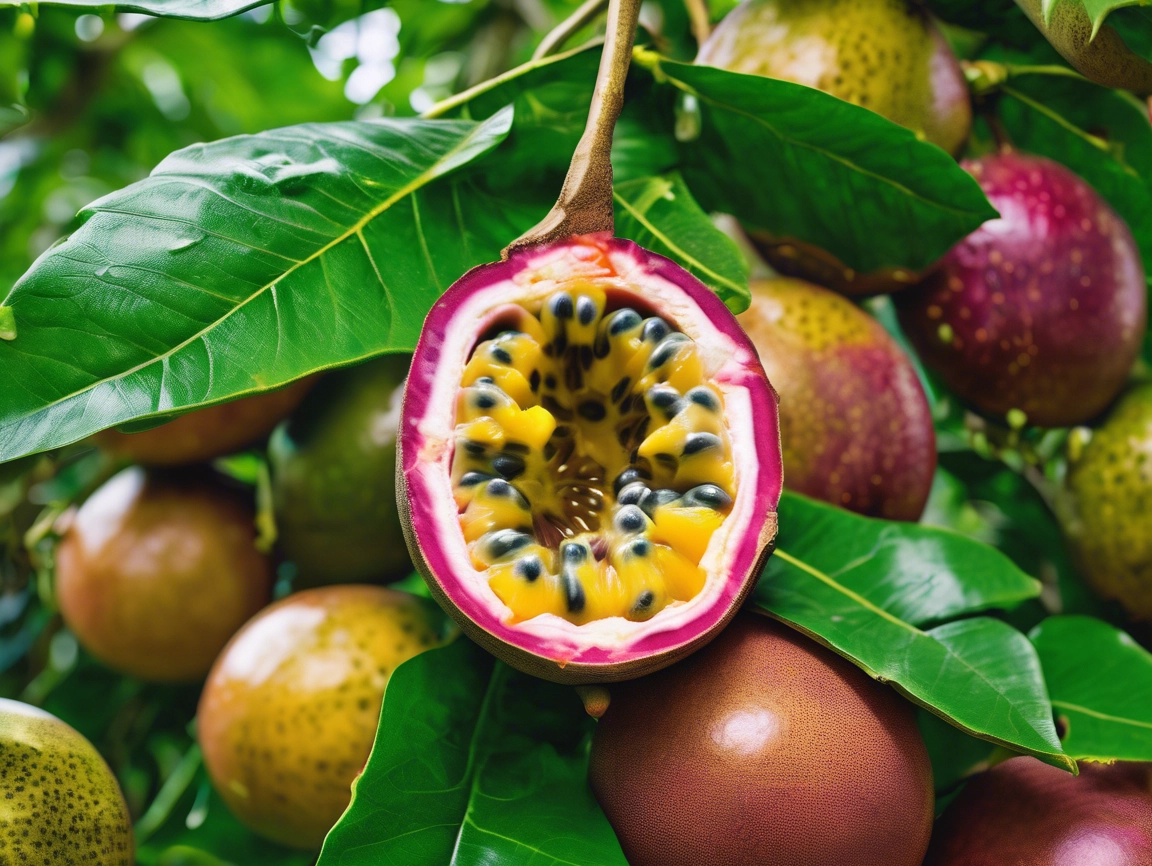
Uncover the facts on passion fruit toxicity, associated allergic reactions, and best practices to enjoy this nutritious fruit safely. Passion fruit is one of nature’s most vibrant and flavorful tropical treasures. But like many exotic foods, it comes with its share of health questions, fears, and sometimes—myths.
Is passion fruit toxic? Can it trigger allergic reactions? Is it safe during pregnancy or with medications? This guide separates fact from fiction, so you can enjoy passion fruit safely and confidently.
🍈 Is Passion Fruit Safe to Eat?
Yes—ripe passion fruit pulp is generally safe for most people. The juicy center of purple and yellow varieties (Passiflora edulis) is enjoyed worldwide in smoothies, desserts, and juices.
However, toxicity concerns arise when people consume:
- Unripe passion fruit
- Leaves and stems from certain Passiflora species
- Excessive amounts of juice
- If they have latex allergies or are on sedative medications
⚠️ Real Case: When Too Much of a Good Thing Goes Wrong
A patient was hospitalized with high blood pressure and prolonged QT interval (a heart rhythm issue) after drinking 5–7 glasses of passion fruit juice daily. While rare, this shows that even healthy foods can become risky in excess.
🧪 Risk Factor #1: Cyanogenic Glycosides
These naturally occurring compounds release hydrogen cyanide when plant tissue is damaged.
🚫 Found In:
- Leaves
- Stems
- Unripe fruit of ornamental species like P. caerulea
✅ Safe Parts:
The pulp of ripe P. edulis fruit has undetectable or trace levels of cyanide. Cooking (e.g. jam-making) further reduces risk.
👍 Safe Eating Tips:
- Eat only ripe, food-grade passion fruit
- Avoid chewing rinds or leaves
- Don’t consume ornamental species
🤧 Risk Factor #2: Allergic Reactions & Latex-Fruit Syndrome
Up to 50% of latex-allergic individuals may react to passion fruit due to cross-reactivity between similar proteins.
🚨 Possible Symptoms:
- Mild: Itchy mouth, hives, stomach discomfort
- Severe: Anaphylaxis, difficulty breathing, dizziness
👩⚕️ Who Should Be Cautious:
- Anyone with a latex allergy
- People with multiple food sensitivities
- First-time eaters should consume a small amount under supervision
✅ Allergy Safety Tips:
- Carry epinephrine if prescribed
- Speak to your allergist before trying passion fruit
😴 Risk Factor #3: Sedative Compounds & Drug Interactions
The sedative properties in passion fruit are mostly associated with Passiflora incarnata (passionflower), used in supplements—not the common table fruit.
Still, excessive juice intake may cause drowsiness or interact with medications in some individuals.
⚠ Key Concerns:
- Drowsiness: May increase when combined with alcohol or medications
- Heart Rhythm Issues: QT interval prolongation linked to high intake
- Drug Interactions: Especially with sedatives or benzodiazepines
- Pregnancy: Avoid passionflower extracts; limit juice intake
✅ How to Enjoy Passion Fruit Safely and avoid passion fruit toxicity
Passion fruit can be a delicious and nutritious part of your diet—when consumed with awareness and moderation. Here’s a recap:
| Do This | Avoid This |
|---|---|
| Eat ripe fruit pulp | Unripe rinds, leaves, or stems |
| Buy from trusted food sources | Using ornamental varieties for eating |
| Limit to 1–2 servings/day | Drinking large quantities daily |
| Be aware of allergies and medications | Mixing with sedatives or alcohol |
| Seek medical help if you notice breathing issues or chest discomfort | Ignoring symptoms of allergic or cardiac reactions |
📚 References:
- PubMed & PMC toxicology studies on passion fruit extracts
- National Center for Complementary and Integrative Health (NCCIH)
- RxList & medical case studies on QT prolongation and sedative risks
- weeds.dpi.nsw.gov.au – data on cyanogenic glycosides
- Clinical research on latex-fruit cross-reactivity
❤️ Stay Informed, Stay Safe
Knowledge empowers better choices. By understanding the facts, myths, and safety tips, you can keep passion fruit a joyful part of your diet—without the drama.
If you have health conditions, are on medications, or are pregnant, consult a healthcare provider before making passion fruit a regular part of your meals.




